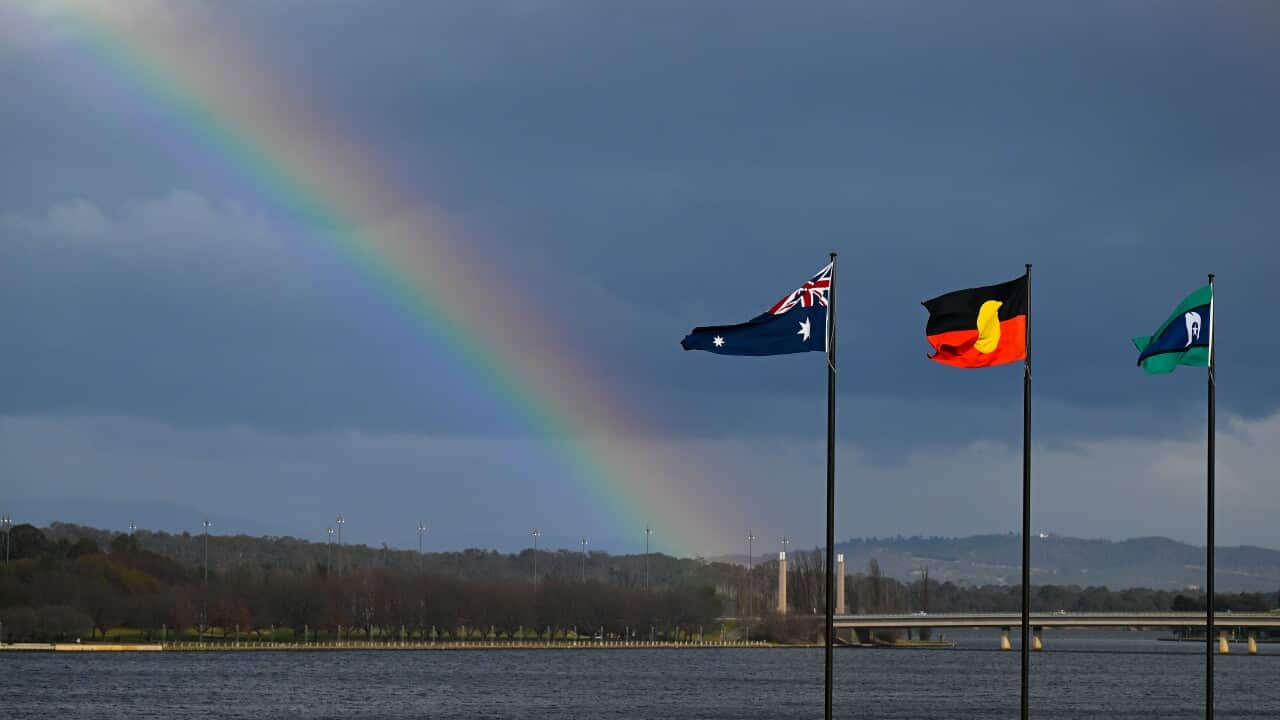TRANSCRIPT
"We are sick and tired of feeling unsafe in our own homelands. Every year we dread the 26 January and the racism and ignorance that comes with it."
That's Ngurra Murray, a Wamba Wamba, Yorta Yorta, Dja Dja Wurrung and Dhudhuroa woman who is the Co-Chair of the First Peoples' Assembly in Victoria.
She is one of a number of prominent Indigenous Australians and leaders who say they are supporting a petition for Australia Day to be moved from its current date of January 26th.
"The ripple effects are felt across generations, manifesting into social and economic and health inequalities that still persist today. To celebrate this day without acknowledging the impact is to ignore the pain and resilience of the First Peoples of this land. To change the date is to acknowledge the strength and resilience of our people, who have survived centuries of attempts to erase our culture."
The 26th of January was first gazetted as a public holiday in New South Wales, when it was a colony, in 1818.
Governor Lachlan Macquarie called it First Landing Day, or Foundation Day, to mark when the First Fleet officially arrived in Australia and the Union Jack flag was raised in Sydney Cove.
Once Australia became a federation on January the 1st 1901, a push eventually began to re-establish such a day - this time for the whole country.
26 January was selected as a date in 1935 and was firmly established under the name of Australia Day by 1994, across all the states and territories.
Uncle Lance O’Chin Koa, Kubbi Kubbi and Wakka Wakka man in Queensland.
He has told NITV Radio he'll be avoiding official commemorations of January 26.
"I think I'm going to go to a local Invasion Day thing up the Sunshine Coast here. If not I'm going to Brisbane to be with my mob down there."
Siena Bhuiyan has both Aboriginal and Bangladesh heritage.
"We all know that it's a very tough day, especially for all the Aboriginal community. So we don't celebrate Australia Day as other people call it. We call it Invasion Day."
Aunty Lauren Jarrett, from Gumbaynggirr country, has also spoken to NITV radio, saying she has other plans entirely.
"I also just like taking the dogs for a walk, down the creek for a swim. And then I'll just connect with the trees, lean up against the trees. I believe our ancestors are in the trees, and just communicate with them for a bit. I really don't like being too political. I'd rather do cultural stuff on that day."
Meanwhile Wijabul Warrabul woman Valerie Smith told NITV Radio she is going to an event in Byron Bay.
"They have a big Survival Day gathering on the beach there. Last year I had a stall but this year I'm going to be in the crowd yelling 'always was always will be'. So I am looking forward to just being amongst people. I just celebrate Survival Day. It's so beautiful that we're here - and look how deadly we are."
These types of protests and alternative events have been held by Indigenous Australians every year since 1938.
Reuben Berg, the other co-chair of the First People's Assembly of Victoria, says First Nations communities want to celebrate with everyone, just not on that day.
He says the petition to change the date already has more than 21,000 signatures.
"If Australia Day is meant to be a date that all Australians can come together and celebrate, then the 26th of January is not the right date. That's not a date to celebrate."













